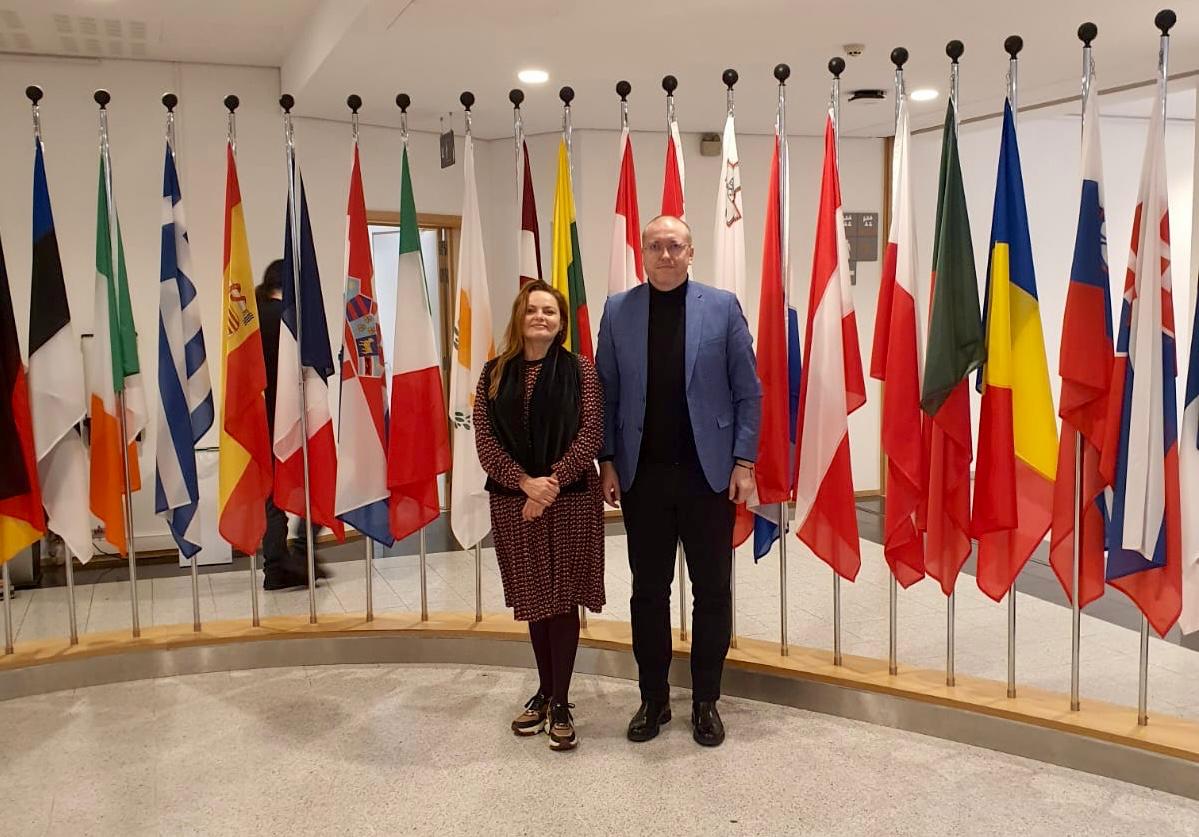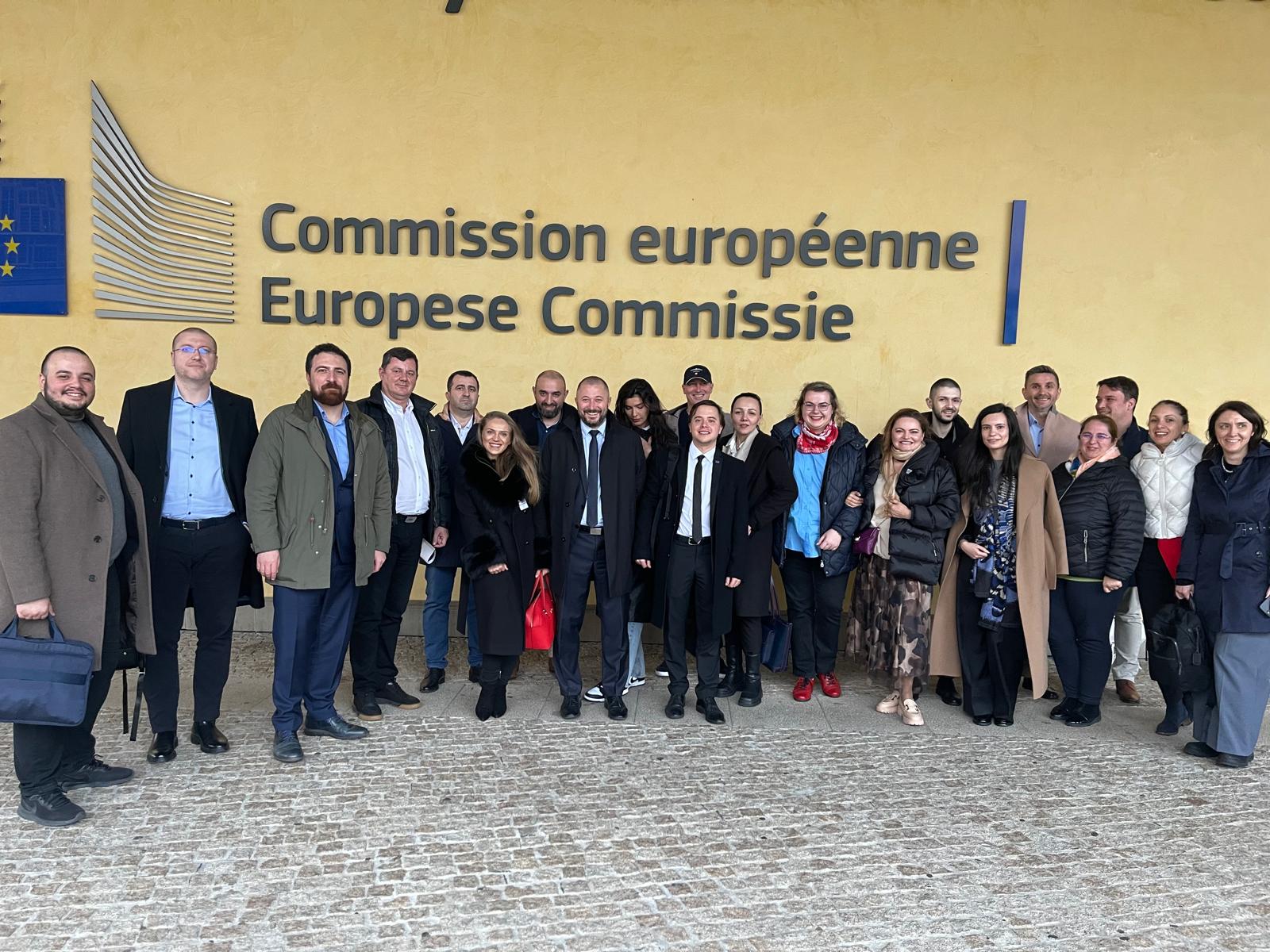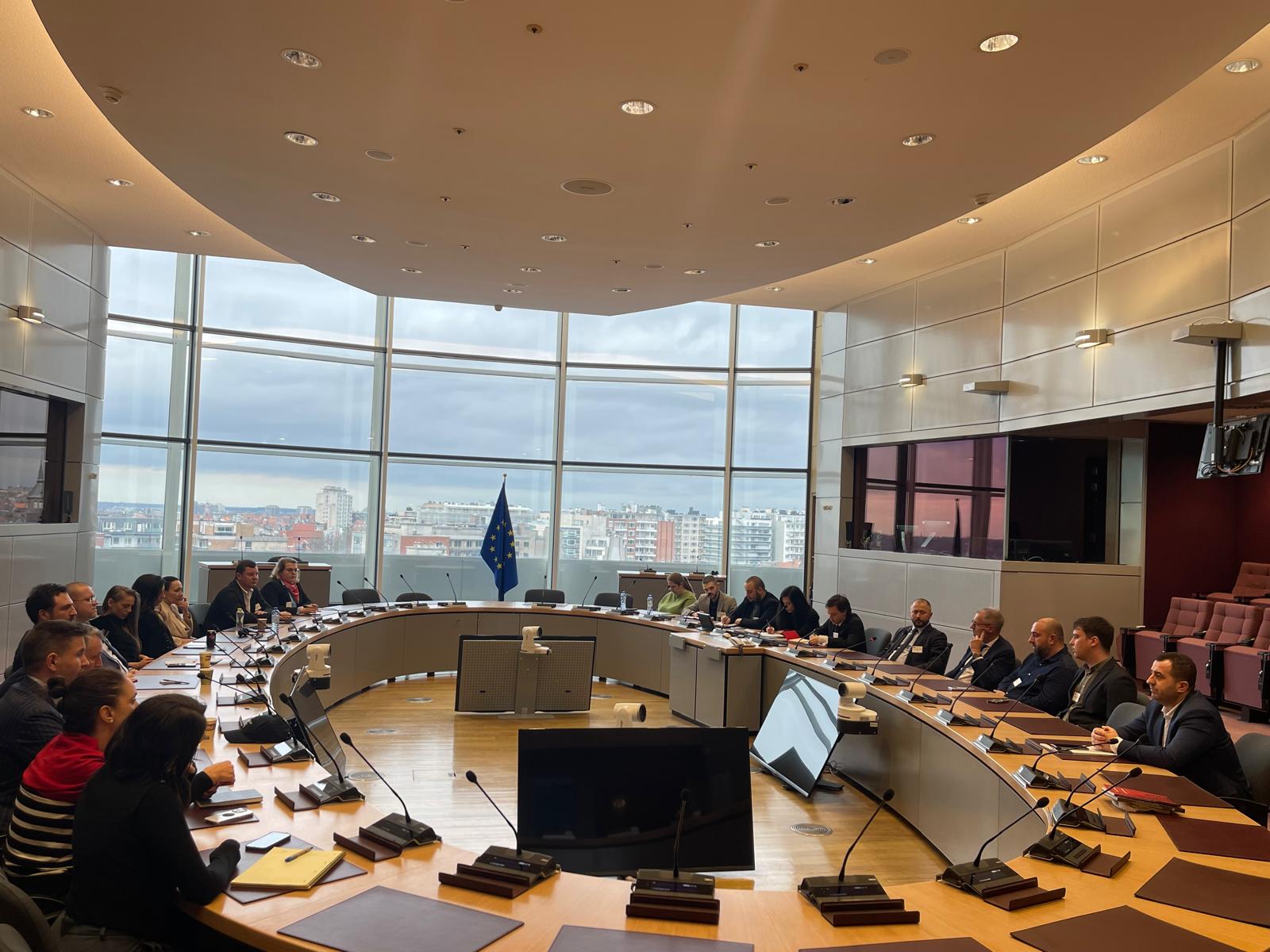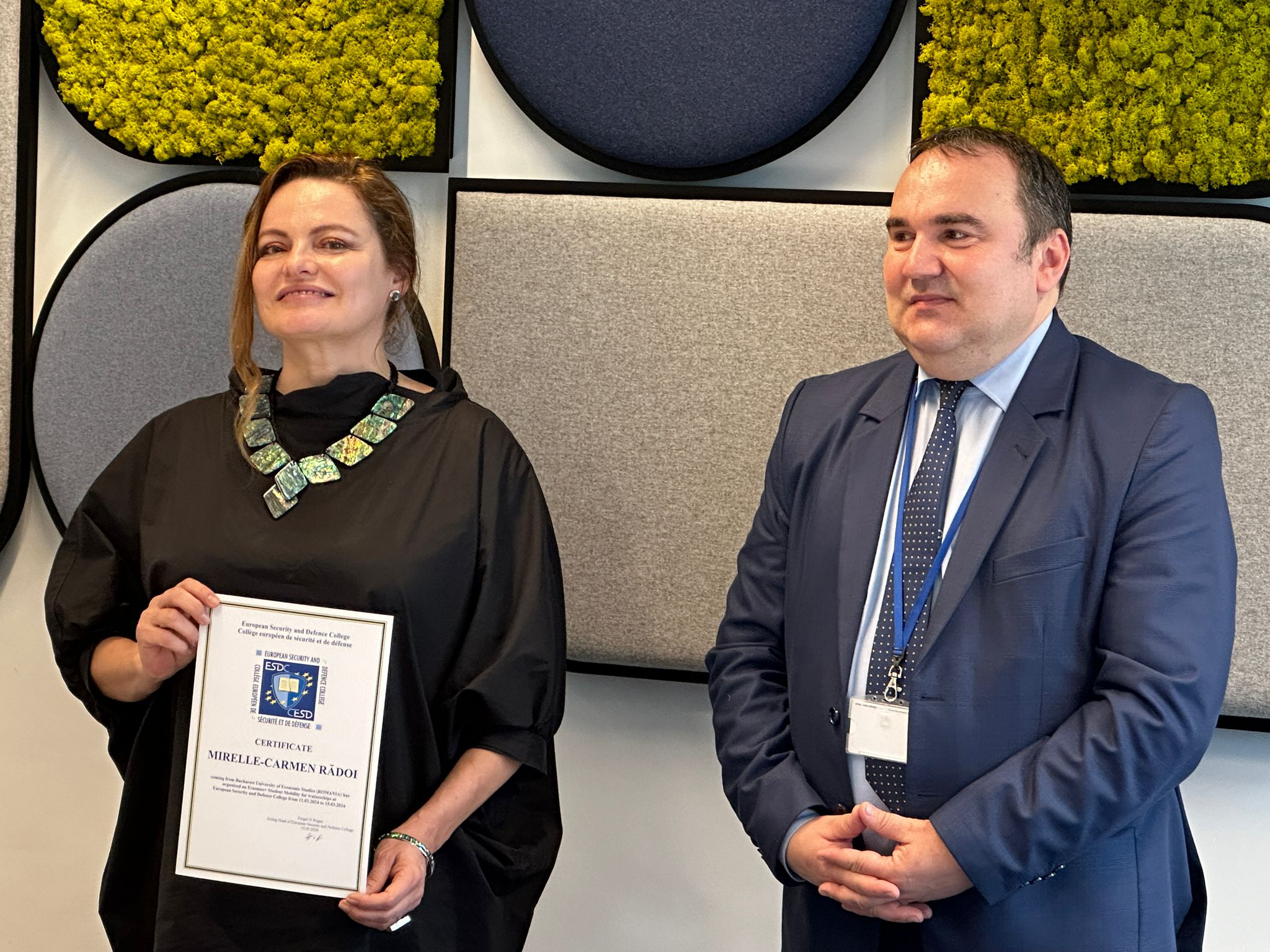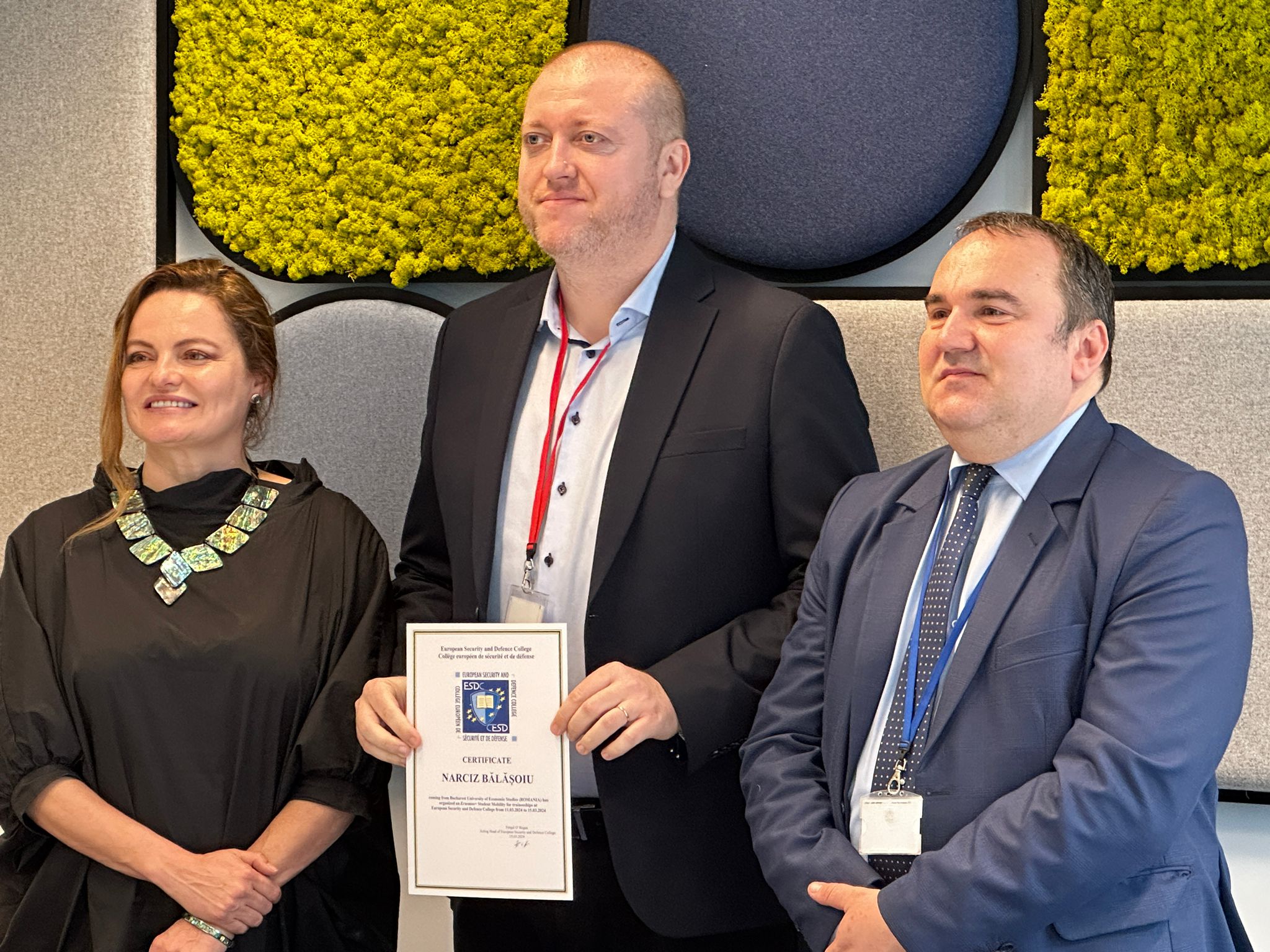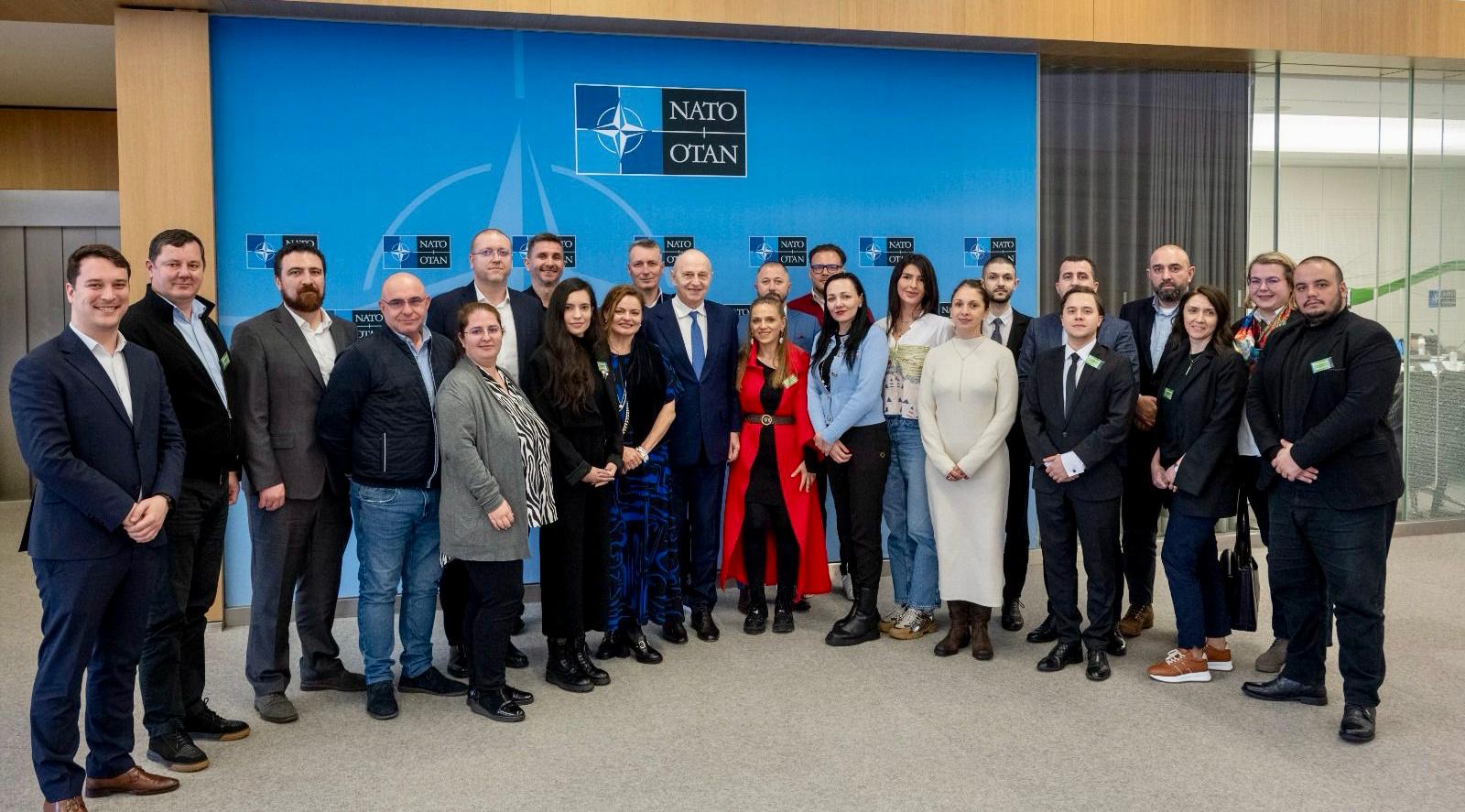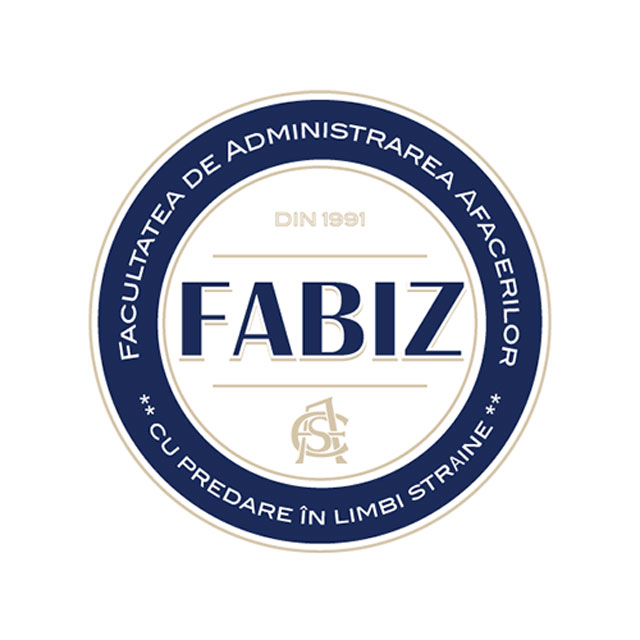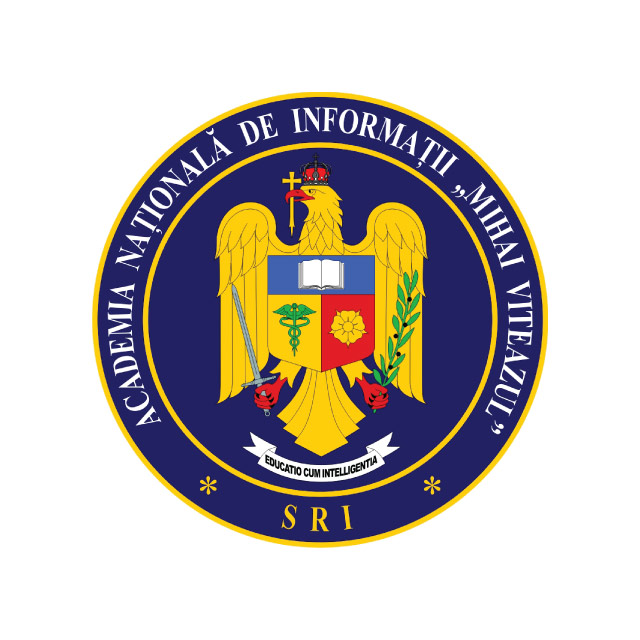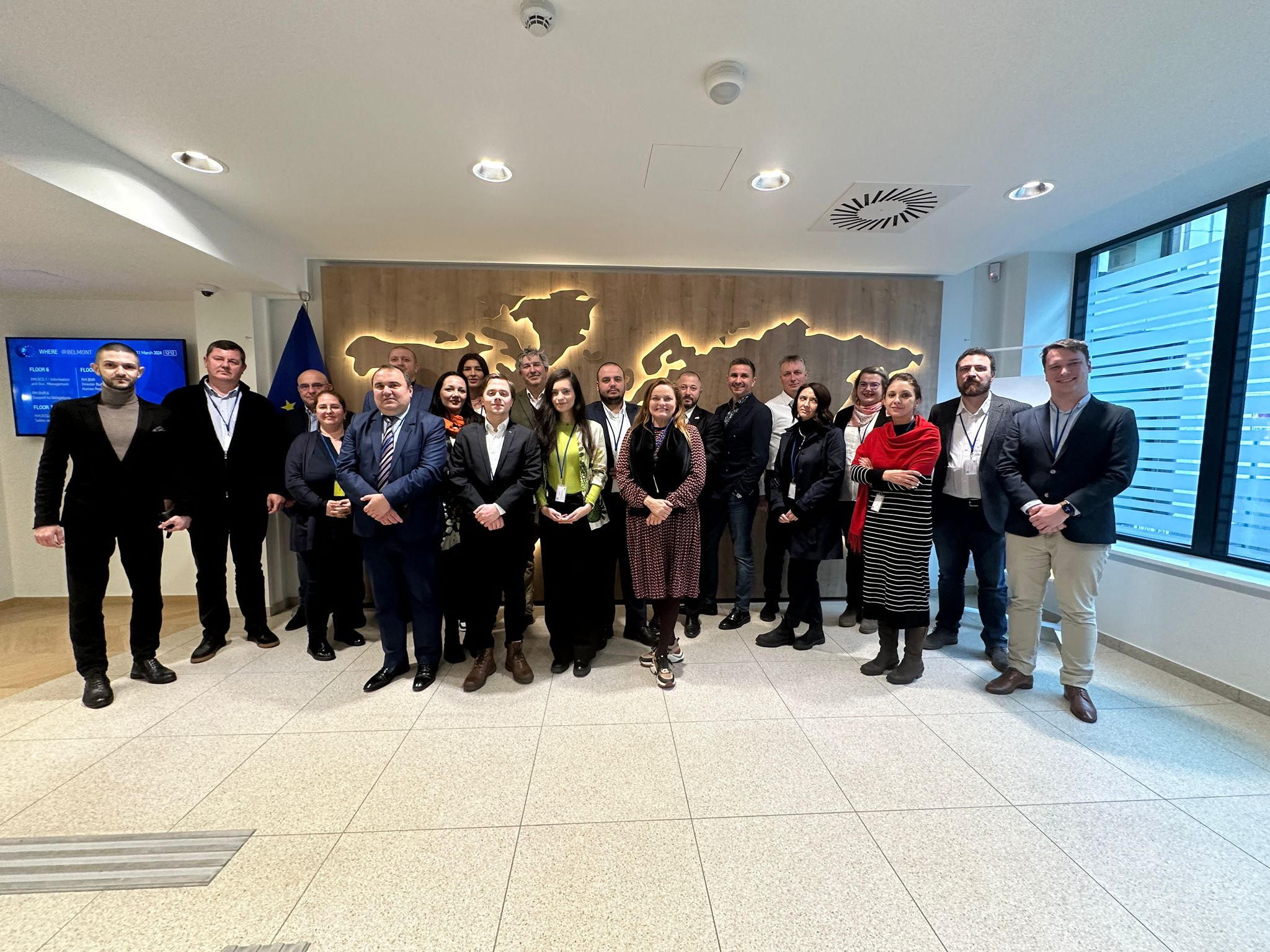
Students in the second year in Master of Business Intelligence at FABIZ visited Brussels between March 10th and 16th, in a study trip aimed at completing and complementing the theory and knowledge presented in the programs’ modules. Prof. Dr. Mireille Rădoi, Program’s Coordinator, and Prof. Dr. Narciz Bălășoiu accompanied the group in the visit that included meetings with relevant actors and institutions in the European Union complex decisional mechanism, and a visit to NATO headquarters. At the end of the 5-day intense and comprehensive program, the unanimous conclusion was clear: the study trip in Brussels provided a multifaceted approach to learning that combined the academic knowledge with the practical experience and direct conversations and feedback, cultural immersion, and a fantastic opportunity for personal and professional growth, highly contributing to the participants’ interconnection and networking.
ESDC | The program started with a visit at the European Security and Defense College (ESDC), hosted by Mr. Laurențiu Giurea, ESDC training manager with an extensive background in internal affairs. Engaging in in-depth discussions in a series of very interesting meetings, the group explored the vital components of security and the strategic importance of comprehensive defense education in addressing contemporary challenges. Mr. Igor Cebek, ESDC training manager, introduced the attendees in the Climate Security and Defense topic, highlighting its growing impact on global security strategies and underscoring the need for integrated defense education that encompasses environmental considerations in shaping future security policies. Mr. Fergal O'Regan, the acting head of ESDC, explained the pivotal role of defense and security as instruments in safeguarding the European Union's values and peace. Reflecting on the essence of their mission, Mr. O'Regan eloquently stated, “Defense and security are means by which we achieve an end. Our union and values need to be protected.” His words perfectly encapsulate the overarching goal of the ESDC and the EU at large: the relentless pursuit of peace.
European Parliament | The visit at the European Parliament was an important milestone in understanding the European governance, the democratic values standing at the foundation of the European architecture and the systems and mechanisms that keep the institutions working. The European Parliament plays a crucial role in shaping EU policies and legislation across various domains, including economics, trade, environment, and human rights, therefore this visit offered the opportunity to learn about specific policy areas, understand legislative priorities, and engage in discussions about the EU's future direction. Delving into the history and goals of the European Union, the group engaged in discussions that spanned from its foundational principles to its aspirations for an integrated and innovative future. The broader implications for European integration and innovation were a focal point.
European Committee of the Regions |The group was received by Mrs Simona Elena Livideanu, policy analyst, at the European Committee of the Regions, which is the voice of regions and cities in the European Union. It represents local and regional authorities across the European Union and advises on new laws that have an impact on regions and cities (70% of all EU legislation). Mrs. Livideanu presented the driving projects and opportunities that the institution's decision-making processes is focused on, highlighting the significant influence of regional governance in shaping EU policies, and promoting a deeper understanding of European unity and strategic innovation.
EGMONT Institute | During a thought-provoking session at the EGMONT Institute, the MBI group had a revealing encounter with Mr. Bernard Siman, a recognized expert in the field, that led discussions on the 'anatomy of hybrid attacks,' unraveling the complexities of hybrid warfare and the crucial role of the hybrid institute in contemporary security strategies. Highlighting a critical takeaway, Mr. Siman emphasized, 'We need public and private partnerships; otherwise, we can't handle hybrid attacks.' This insight underscored the importance of collaborative efforts in countering the multifaceted threats facing global security. EGMONT is the Royal Institute for International Relations and an independent think tank based in Brussels. Its interdisciplinary research is conducted in a spirit of total academic freedom. Drawing on the expertise of its own research fellows, as well as that of external specialists, both Belgian and foreign, it provides analysis and policy options that are meant to be as operational as possible (*https://www.egmontinstitute.be/about-the-institute/)
EEAS | During a visit to the European External Action Service (EEAS), the group engaged in enriching discussions on pressing EU policy challenges. Dimitar Lilkov, Senior Research Officer at the Wilfried Martens Centre for European Studies, offered insights on the EU Green Deal, advocating for a robust industrial strategy beyond regulatory measures, and highlighted the global context of carbon emissions, with the EU at 7%, China at 30%, and the US at 13.5%. Concurrently, Cristian Manea from the STRATCOM Division unveiled the nuances of Foreign Information Manipulation and Interference (FIMI), delineating the fine line between misinformation and disinformation. These sessions underscored the complexities of environmental policies and information integrity, crucial for the EU’s strategic positioning and defense.
European Commission | To conclude the tour of European institutions on the very high note, the group had the privilege of a very insightful meeting with Mr. Michael Hager, Head of the Cabinet of the Vice President of the European Commission. The discussion centered around the critical themes of EU trade policy, trade deals, and the complex geopolitical landscape defining the 21st century. Mr. Hager elaborated on how economic security and the international economic environment are pivotal to the EU's strategy amidst an increasingly uncertain global context. These components, as explored during the meeting, are vital in understanding the European Union's approach to maintaining and enhancing its role on the world stage.
NATO | In an enriching engagement at NATO headquarters, the MBI students were honored to have Mr. Mircea Geoana, the Deputy Secretary-General of NATO, share his invaluable insights on the intricate interplay between Security, Economy, Technology, and Society. Highlighting the advent of the 5th technological revolution, Mr. Geoana underscored the imperative for Romania to balance its strategic partnerships, emphasizing the significance of regional collaborations alongside global economic ties. With a distinguished career that includes serving as the Romanian Ambassador to the United States and his tenure at NATO, Mr. Geoana's discourse provided a profound understanding of the challenges and opportunities that lie ahead. 'It's essential for emerging professionals to navigate the complexities of our ever-evolving world with agility and foresight,' Mr. Geoana remarked, inspiring our students to aspire towards being the next wave of leaders capable of steering Romania into a prosperous future.
Konrad-Adenauer-Stiftung Foundation | The study trip in Brussels concluded with the group’s visit at the Konrad-Adenauer-Stiftung Foundation office, one of the political foundations of the Federal Republic of Germany. With more than 70 offices abroad and projects in over 120 countries, KAS is making a unique contribution to the promotion of democracy, the rule of law and a social market economy. The group benefited of KAS’s extremely valuable support for its study trip to Berlin last year, therefore visiting the KAS Brussels office was a natural continuation of a very fruitful and valuable collaboration.
As one of the main creators and promoters of the MBI program at FABIZ, Prof. Dr. Mireille Radoi coordinated the study trip to Brussels as an integral part of the academic experience: “MBI is all about integrating technology, building business relevance, and developing careers and we believe that our study trips are the unique touchpoint that make the program truly excellent and special. Last year we visited Berlin, this year we were in Brussels, and both trips highly contributed to a fantastic experiential learning, networking opportunities and interaction with experts, a deep contextual understanding, and professional and personal growth. We thank and appreciate our highly reputed hosts in Brussels, with their openness and support highlighting once again the power and value of dialogue and cooperation.”
The study trip proofed to be an integral part of the MBI’s educational experience, providing students with the opportunity to explore, learn and communicate directly with the actors involved in the European institutions and decision makers. MBI is a Master’s program developed by the Faculty of Business Administration in foreign languages (FABIZ), endorsed by the Bucharest University of Economic Studies and the “Mihai Viteazul” National Intelligence Academy. More details are available at https://intell.fabiz.ase.ro/.
